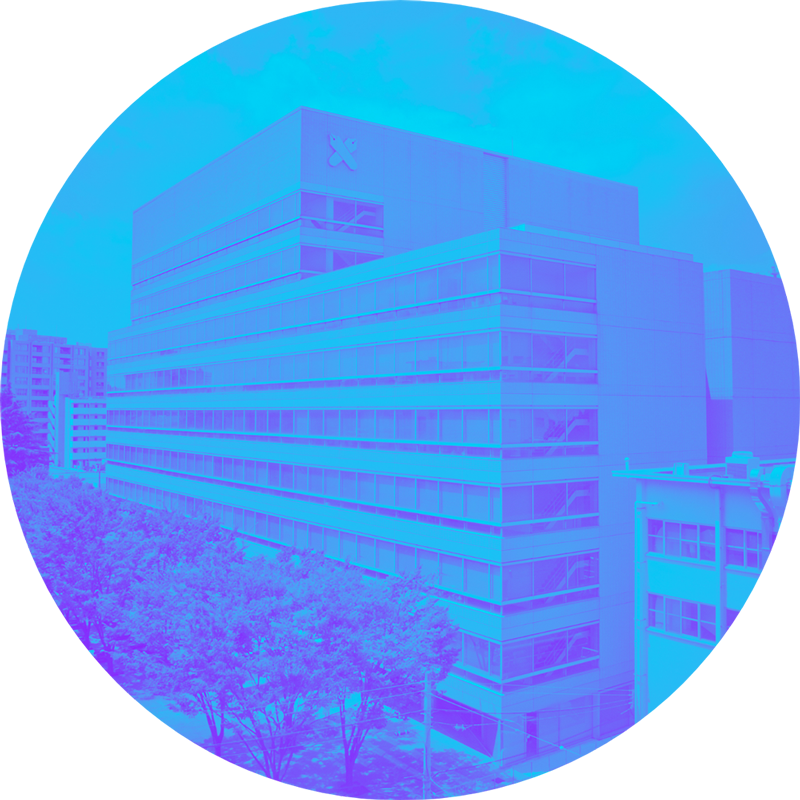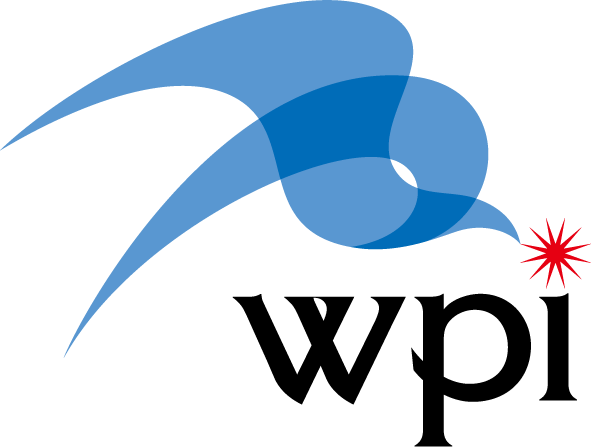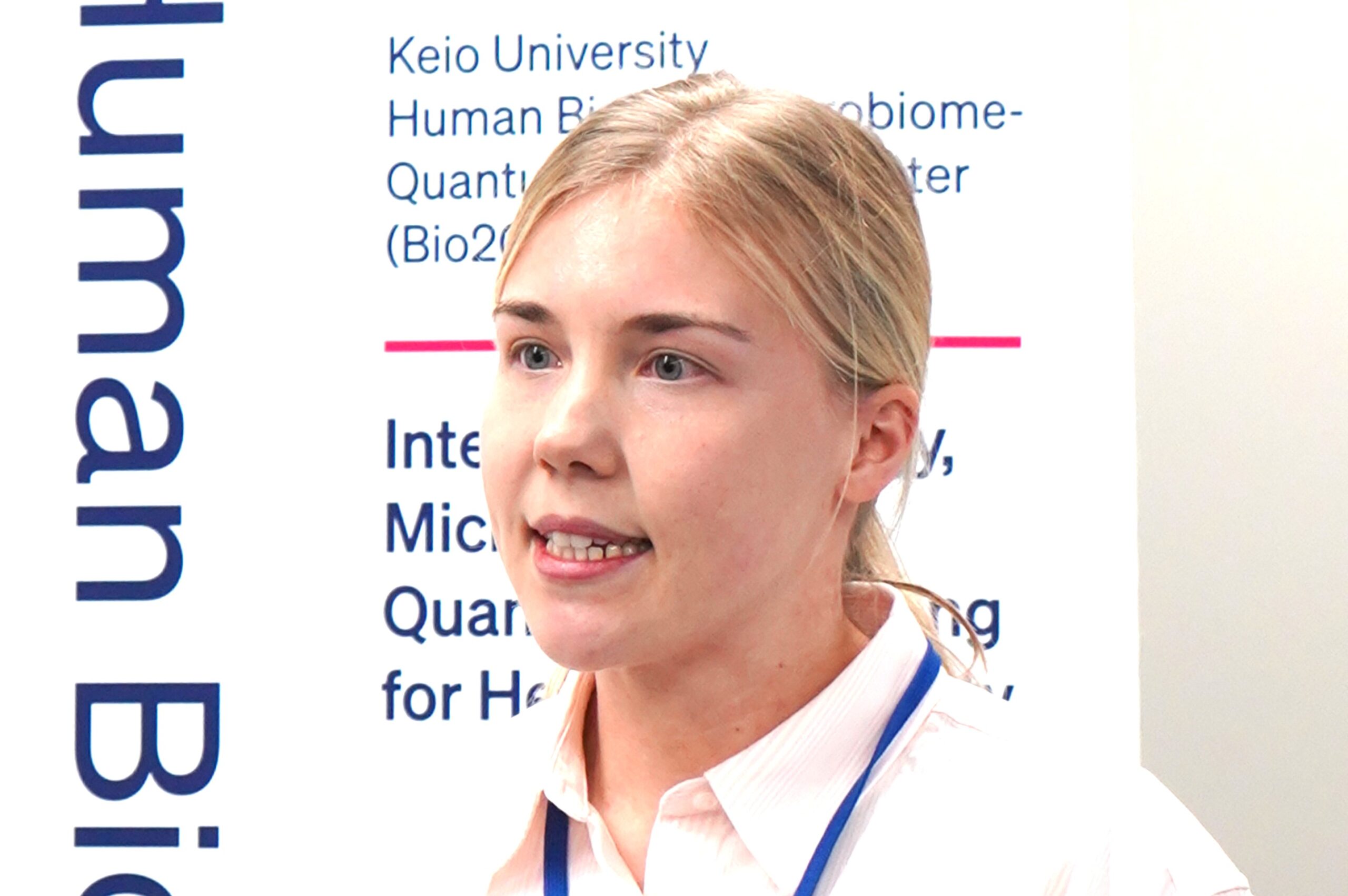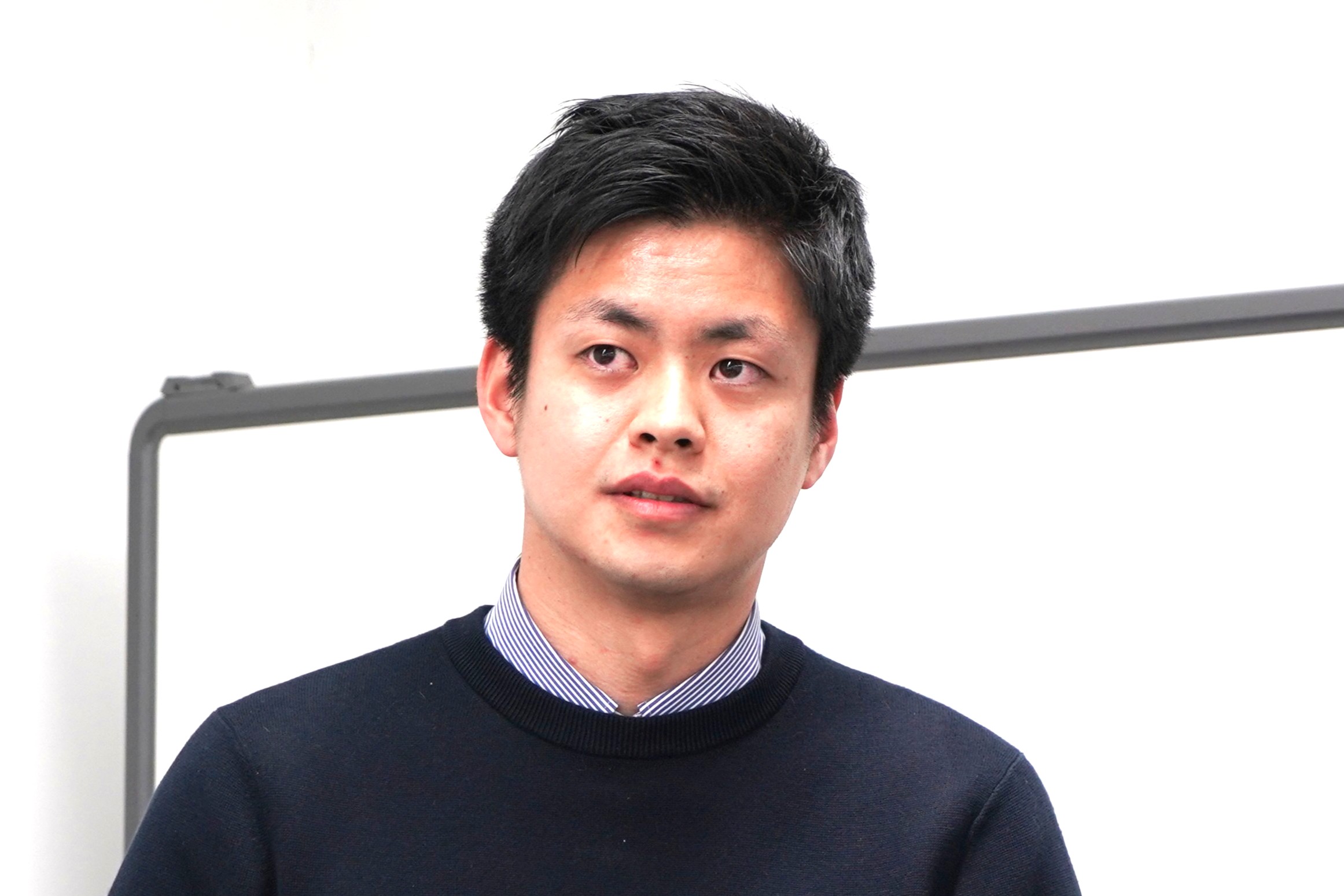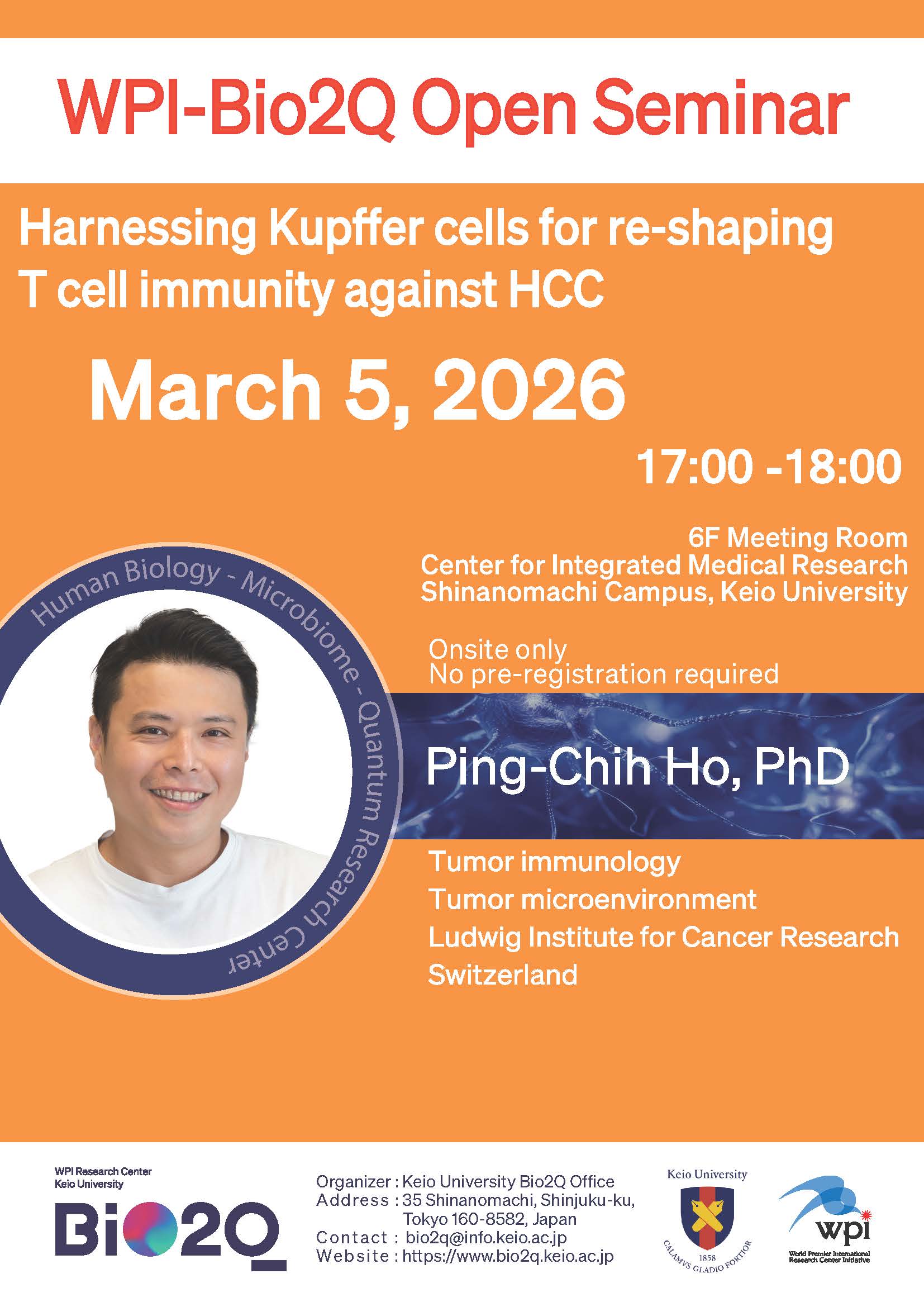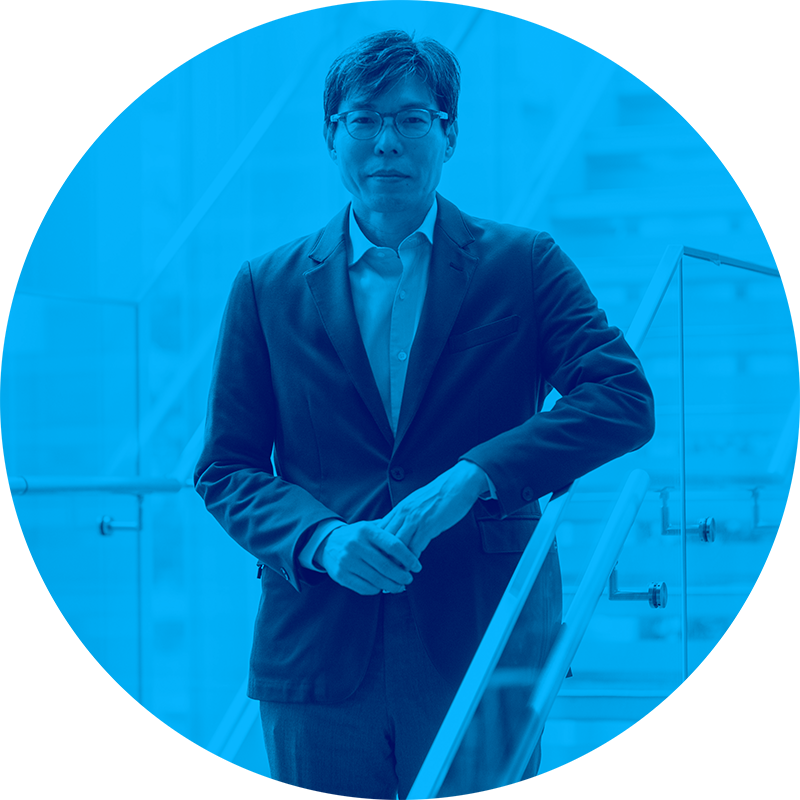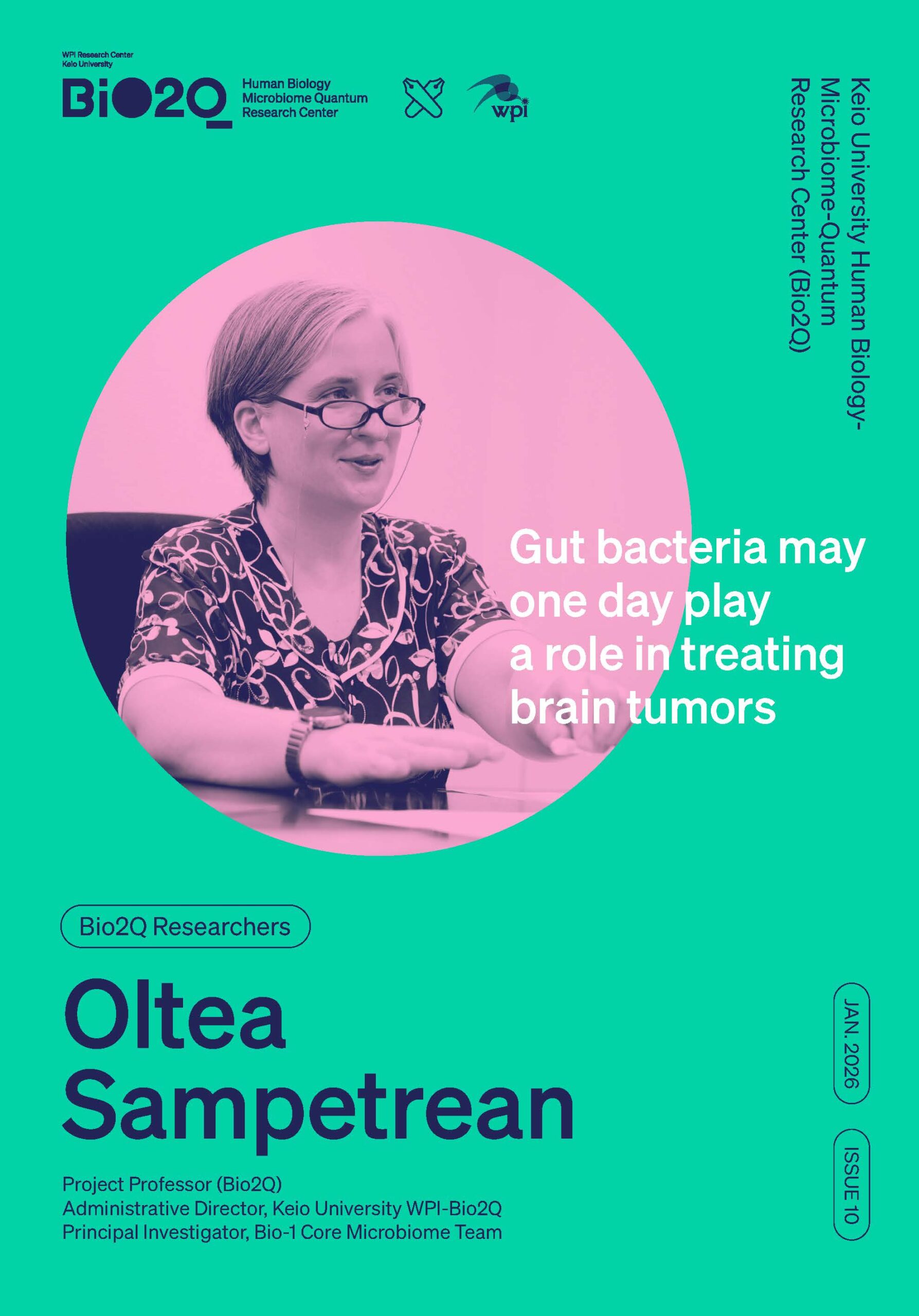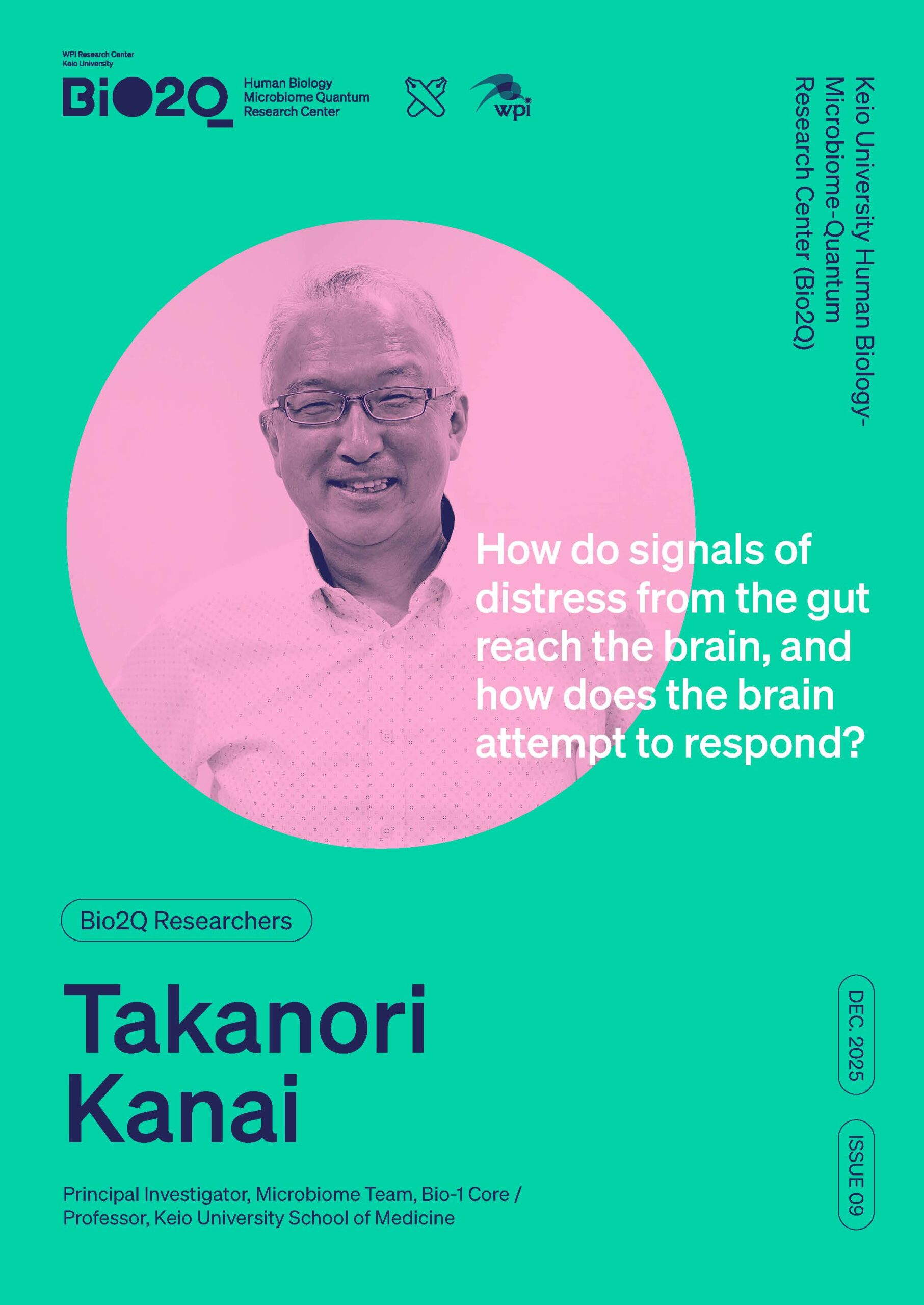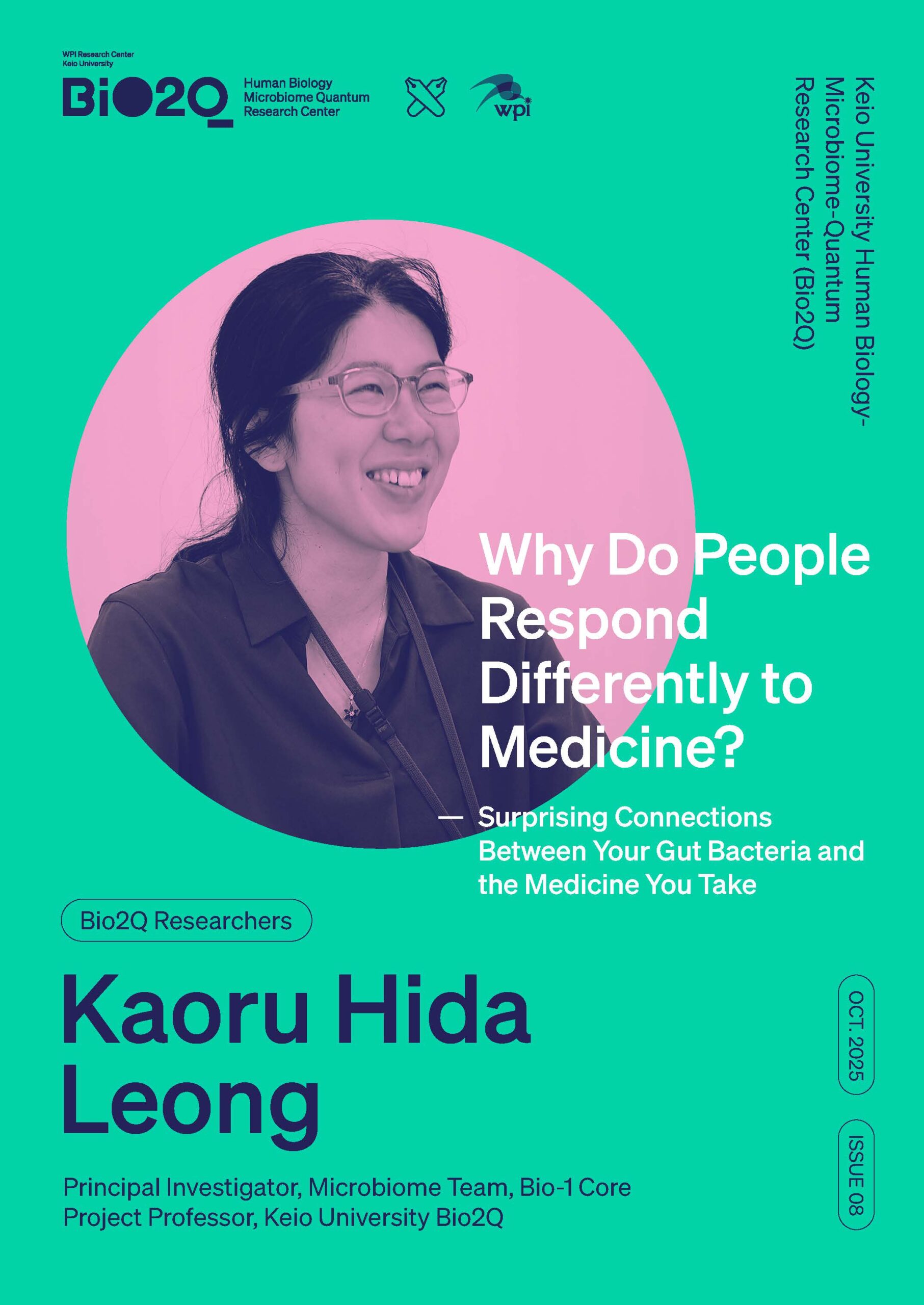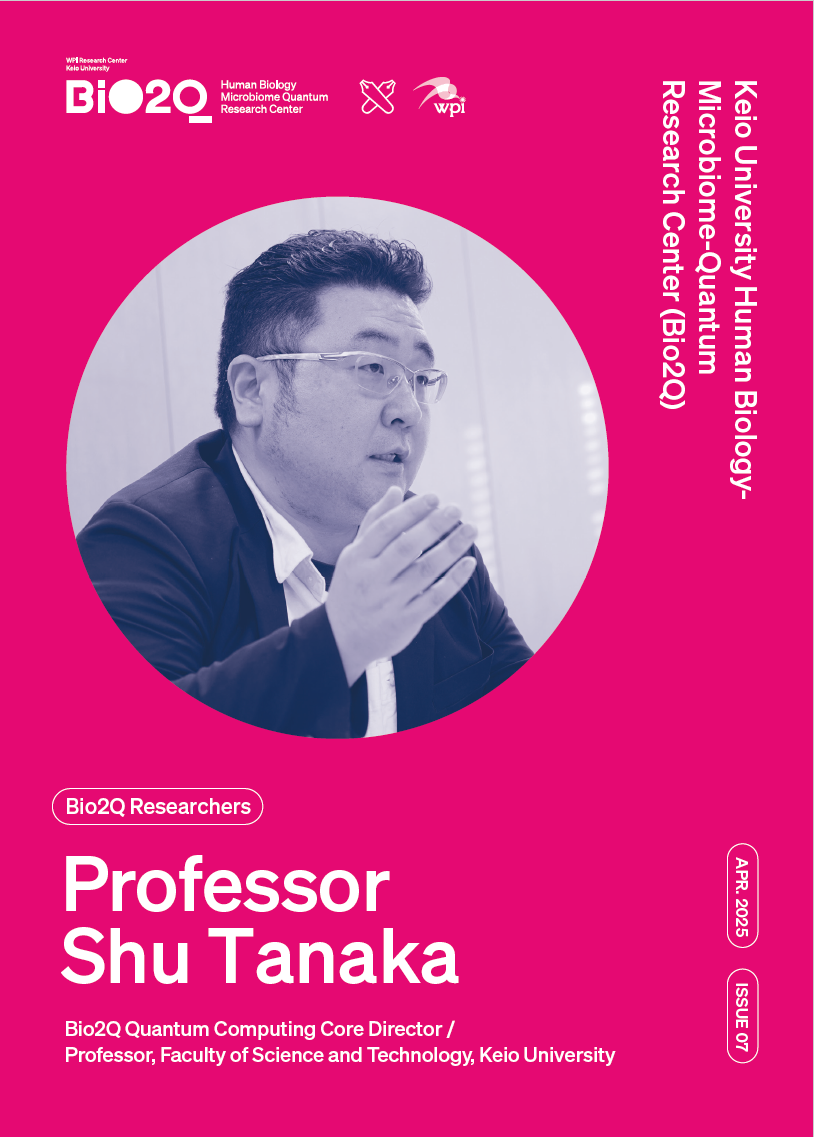A NEW SCIENCE FIELD
慶應義塾大学 ヒト生物学-微生物叢- 量子計算研究センター (Bio2Q)
Keio University Human Biology- Microbiome- Quantum Research Center (Bio2Q)
Integrating Biology, Microbiome and Quantum Computing for Healthy Longevity

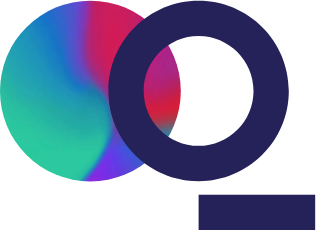
News
【Seminar Report】WPI-Bio2Q Open Seminar: Carys Williams, PhD
Keio University Human Biology-Microbiome-Quantum Research Center (WPI-Bio2Q) held a seminar as follows. 16:00 -17:00, February 26, 2026 ...
【Seminar Report】WPI-Bio2Q Open Seminar: Andrew Wray, PhD
Keio University Human Biology-Microbiome-Quantum Research Center (WPI-Bio2Q) held a seminar as follows; Date and Time: 15:00-16:00, Febr...
【Seminar Report】WPI-Bio2Q Open Seminar: Takeharu Mino, PhD
Keio University Human Biology-Microbiome-Quantum Research Center (WPI-Bio2Q) held a seminar as follows. 16:00 -17:00, February 19, 2026 ...
【3/5 Seminar】WPI-Bio2Q Open Seminar: Ping-Chih Ho, PhD
Keio University Human Biology-Microbiome-Quantum Research Center (WPI-Bio2Q) will hold a seminar as follows. This is an event for faculty, ...

Mission & Identity of Bio2Q
Human health is maintained by complex interactions between multiple organs. These interactions include the microbiome, which exists on every external surface of the body, and the resulting information is processed and utilized in a coordinated manner.
Our center will develop novel research techniques to understand the interactions between multiple organs and the microbiome and develop methods to apply quantum computing to human biology. Our mission is to forge a new interdisciplinary research area that will lead to groundbreaking progress in elucidating the regulatory mechanisms sustaining human health. In the long term, we will develop new prophylactic/therapeutic approaches to promote healthy longevity.
World leaders in microbiome research, organoid technology, metabolic analysis, neural circuit analysis, and quantum computing
Integration of cutting-edge technologies of the three research core units, the Multidimensional data analysis core, the Homeodynamics mechanistic analysis core, and the Quantum computing core, to promote fusion research
Application of Artificial Intelligence (AI) and quantum computing to further the understanding of human biology
Comprehensive, longitudinal clinical samples related to cancer, diabetes, obesity, neuropsychiatric disorders, developmental disorders, immune disorders, aging, and centenarians
A joint cross-disciplinary graduate English program (STaMP) between the Graduate School of Medicine, Graduate School of Pharmaceutical Sciences, and Graduate School of Science and Technology.

Members & Collaboration

Our Team
Bio2Q brings together world-leading experts across multiple life science disciplines, bioinformatics and quantum computing functionally organized into Bio-1 (Multidimensional data analysis), Bio-2 (Homeodynamics mechanistic analysis) and Q (quantum computing) core units.
Collaborations
Bio2Q is part of the collaborative network of world-leading researchers. Thus, Bio2Q collaborates with researchers from Harvard University, MRC-LMB, Nanyang Technological University, Riken, and Central Institute for Experimental Animals.
Goals of Research
Accumulate multiomics data from humans and model organisms and compile a multidimensional database.
Elucidate the structure and function of microbiome-derived metabolites.
Refine imaging metabolomics and structural biology to promote in situ functional analysis of metabolites in organs and cells.
Develop quantum computing-based algorithms and pipelines to analyze the interactions between multiple organs and microorganisms.
Model the interface between the environment and the human body by advancing organoid technology and animal models and elucidate the mechanisms underlying the conversion of external factors into internal signals.
Leverage connectomics and structural biology to understand the dynamic multiorgan interactions, including gut-brain communication.
Multiorgan
Interactions
- Bio 1 Core
- Bio 2 Core
- Q Core
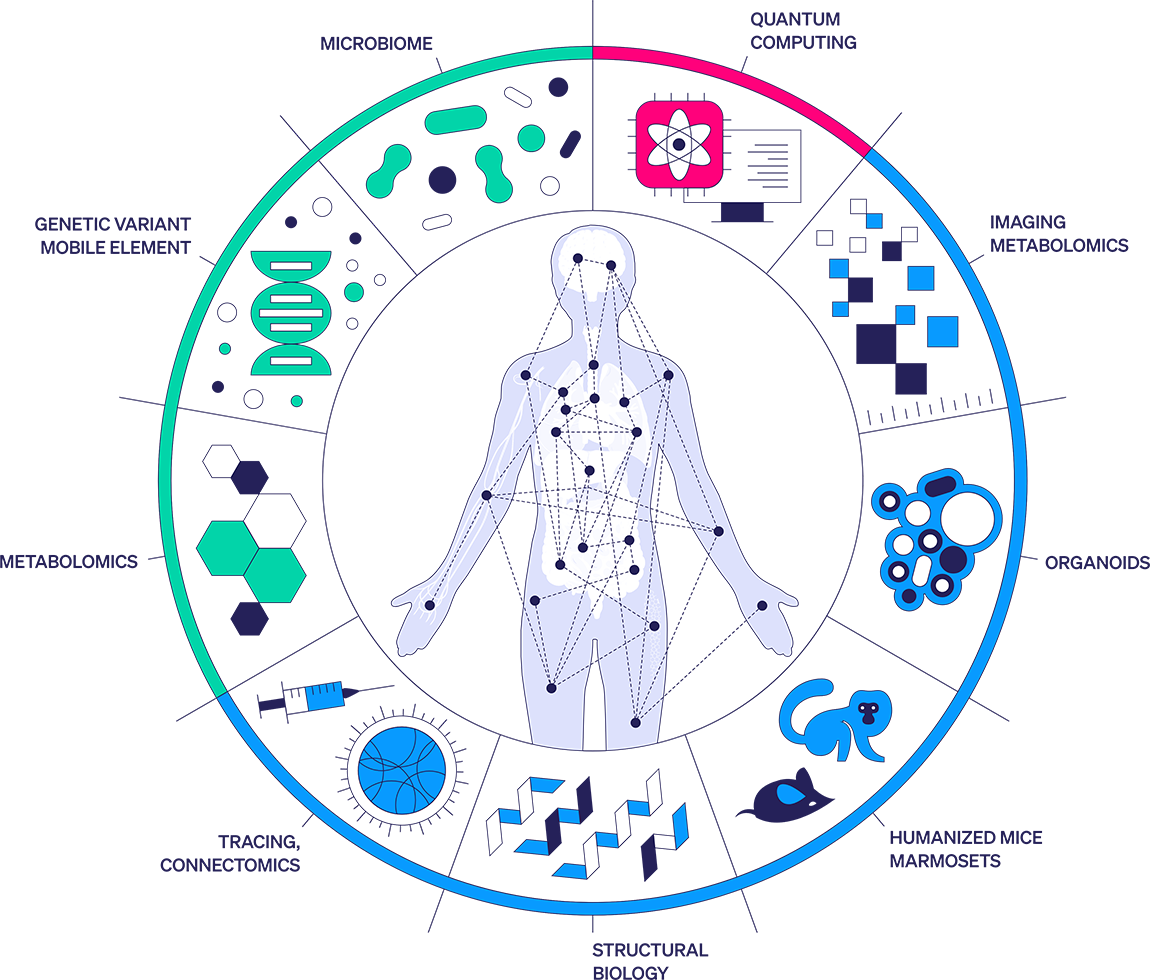

Education

A joint cross-disciplinary graduate
English program
Bio2Q has established a joint cross-disciplinary graduate English program called STaMP (Science and Technology, and Medicine, Pharmacy) between the Graduate School of Medicine, the Graduate School of Science and Technology, and the Graduate School of Pharmaceutical Sciences. The Bio2Q STaMP program is a “place of resonance” where faculty, researchers, and students from the three graduate schools can directly interact with one another. This enables each graduate student to work with multiple mentors and receive guidance that transcends graduate school boundaries.
STaMP aims to achieve the following:
- Shared mentor program
- Research internship program
- Symposium & retreat led by graduate students
- Cross-listed graduate workshops
- High school outreach program

Support for Bio2Q
Creating the future of health – your thoughts are the first step to changing the world.
Bio2Q’s major goal is to realize a society where people can live long and healthy lives with smiles on their faces. As a member of the World Premier International Research Center Program (WPI), we are tackling some of life’s most enduring challenges. Our research focuses on unraveling the complex interactions between the microbiome and multiple organs, by using cutting-edge artificial intelligence (AI) and quantum computing technologies. Our most important asset is the passionate researchers who are paving the way for the future with us as we explore this unprecedented field.
Your support will help shape the medical care of tomorrow.
Your support has the potential to help drive the development of new methods for preventing and treating diseases and contribute to building a healthier, longer-living society. Your compassion will further ignite the vision of our talented early-career researchers and encourage their next great discovery. Your determination will accelerate the realization of our shared vision for a society where people live longer and healthier lives. Our research center is home to some of the world’s top scientists, including leading experts in microbiome research, specialists in organoid technology, metabolomics, and neurocircuit analysis, and innovators in quantum computing—all of whom believe in a better future and are working tirelessly to make it a reality.
For more information, please contact:
Keio University WPI-Bio2Q Contribution Office
35 Shinanomachi, Shinjuku-ku, Tokyo, 160-8582, Japan
03-6709-8106
bio2q@info.keio.ac.jp
Bio2Q Research Promotion Fund—A bridge to the next generation.
The Bio2Q Research Promotion Fund is more than just a funding mechanism, it is an initiative to build a bridge that carries your hopes and ideas into the future. Researchers supported by the Bio2Q Research Promotion Fund will hold your aspirations close, in both heart and mind. The knowledge generated through their work will contribute to the health of humankind, including the health and well-being of your family, friends, and future generations. In creating an environment where cutting-edge, translational research can thrive, we emphasize diversity, equity, and inclusion. We are committed to building a cooperative society where individuals respect one another’s individuality and support each other through mutual understanding.
If you have the desire to make a difference in someone’s life…
We can help you connect that desire to the future in the most meaningful way. Your donation can support the passion of a single researcher, lead to a discovery, and potentially save countless lives. Together, we will create the medicine of tomorrow. One small step can lead to a giant leap forward for humanity.
For more details about your donation, please refer to the prospectus
How to apply:
To make a donation, please complete and sign the Donation Application Form and send it to us by mail if you are an individual or by email (as a PDF) if you are a corporation. (We will send a return envelope to individuals upon request.)
From all of us at WPI-Bio2Q, we thank you for your generosity.
For more information, please contact:
Keio University WPI-Bio2Q Contribution Office
35 Shinanomachi, Shinjuku-ku, Tokyo, 160-8582, Japan
03-6709-8106
bio2q@info.keio.ac.jp
Open Positions
We are currently recruiting for
the following positions:
Digital Downloads
Booklets Series for young readers

Contact
Keio University Human Biology-Microbiome-Quantum Research Center (Bio2Q)
-
EMAIL
bio2q (at) info.keio.ac.jpPlease replace (at) with @ when sending an email.
-
PHONE
+81 3 6709 8106
-
ADDRESS
35 Shinanomachi, Shinjuku-ku,
Tokyo 160-8582 Japan
